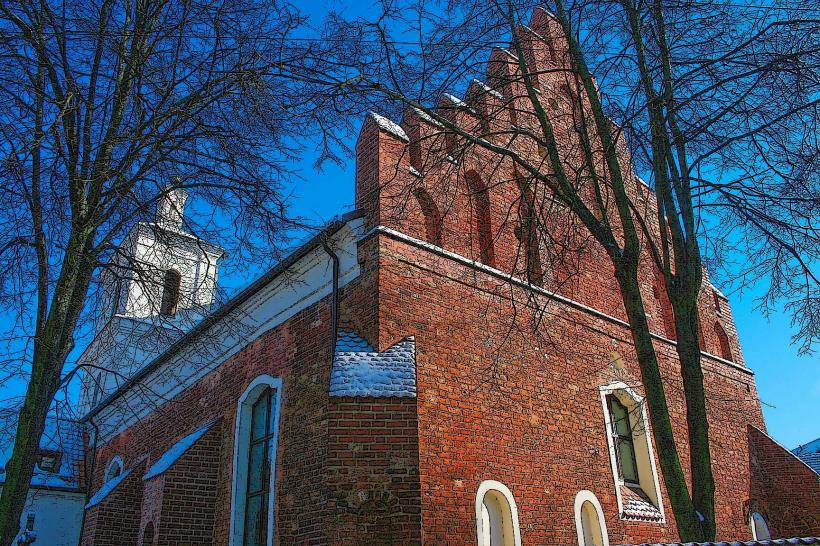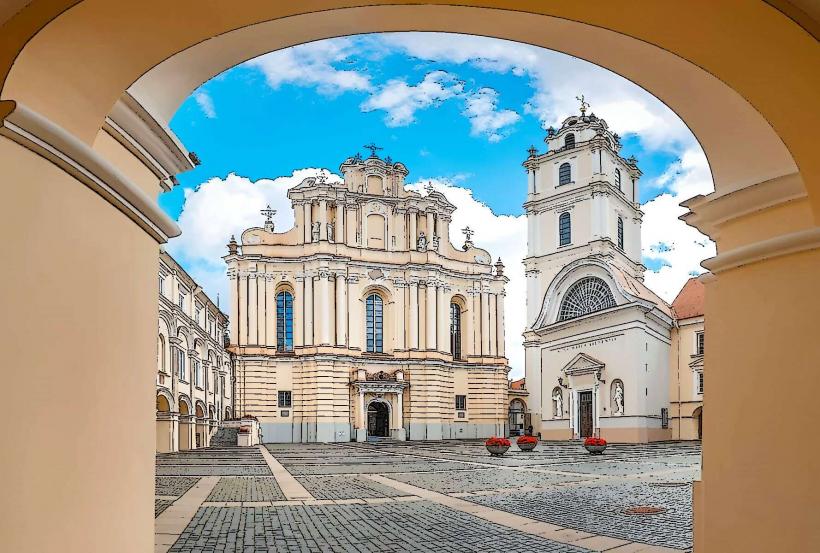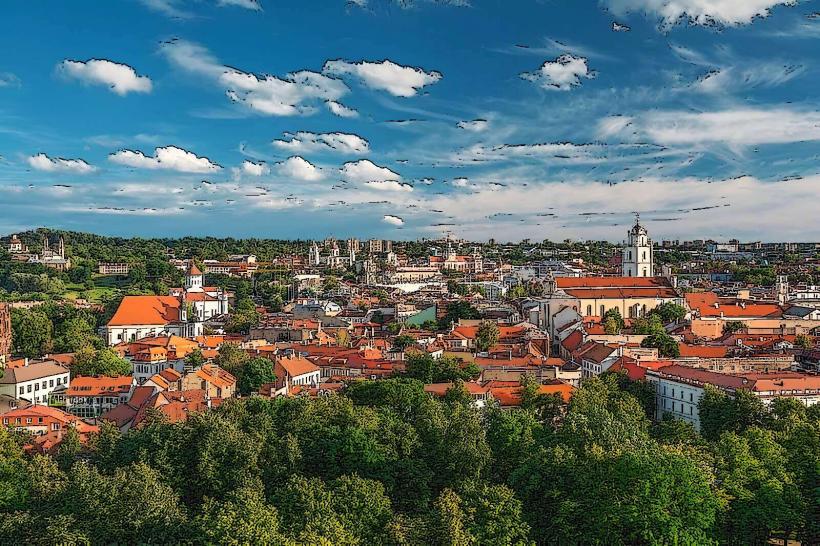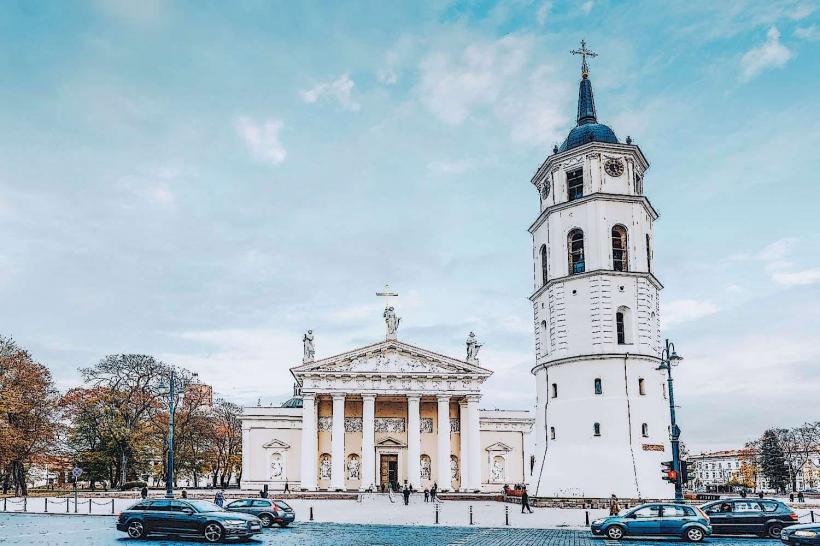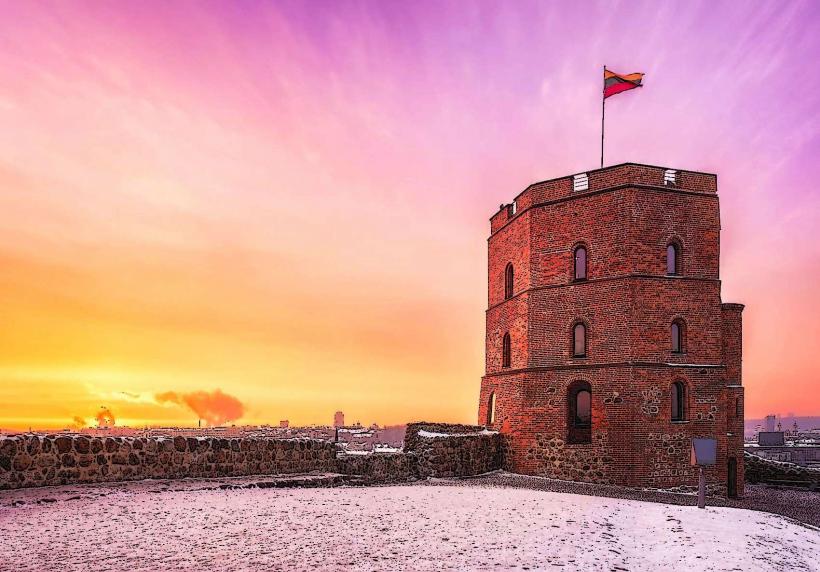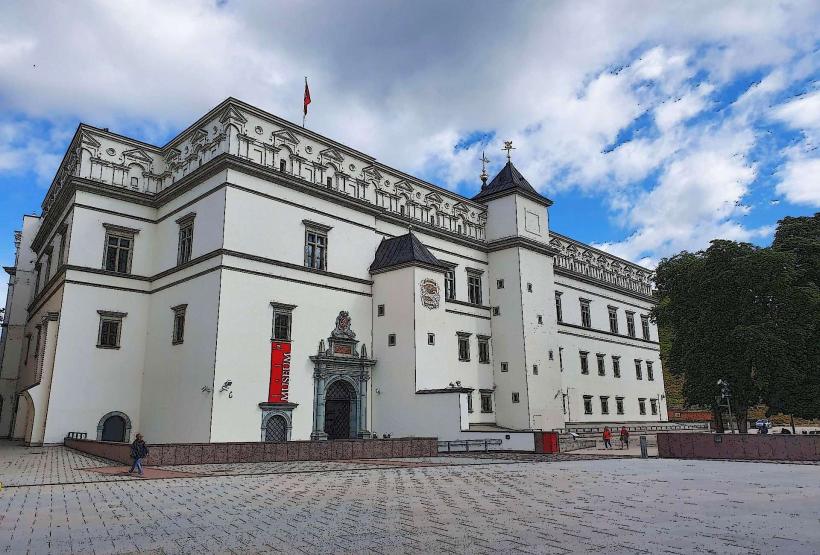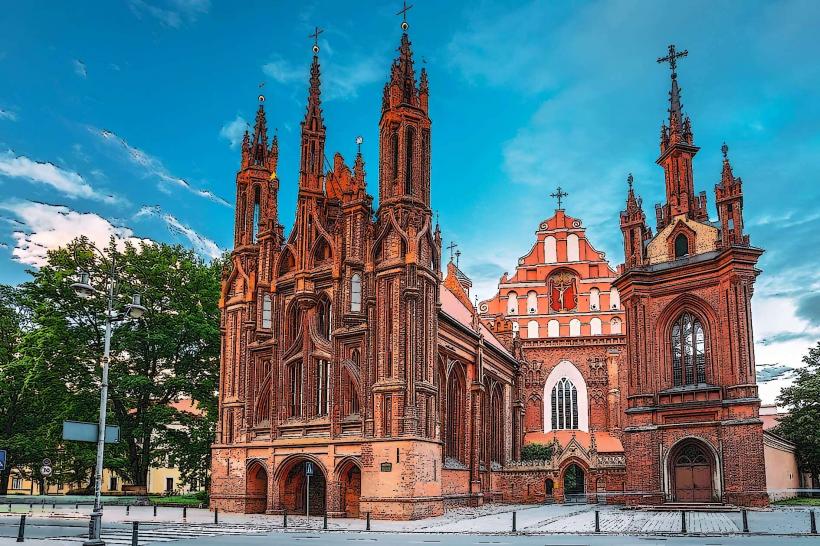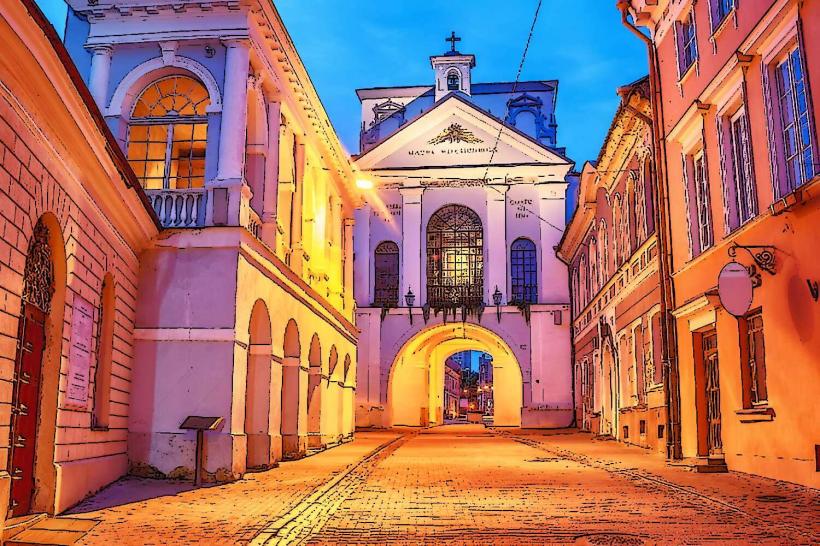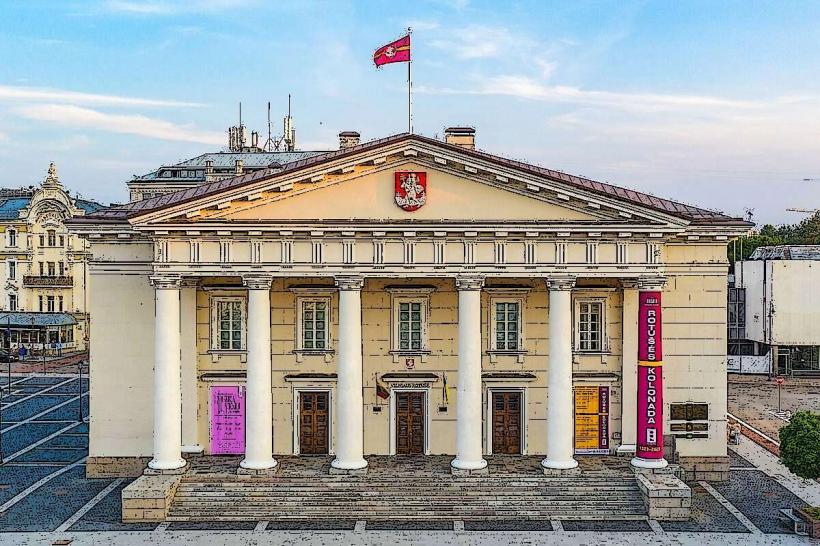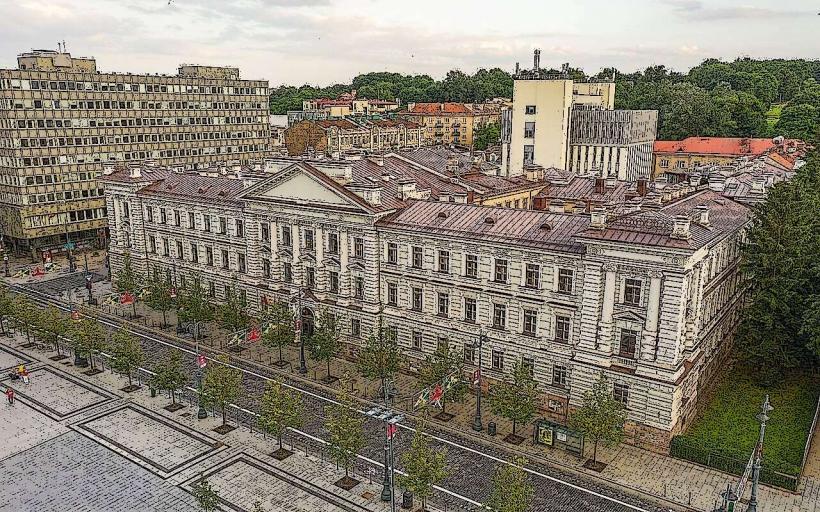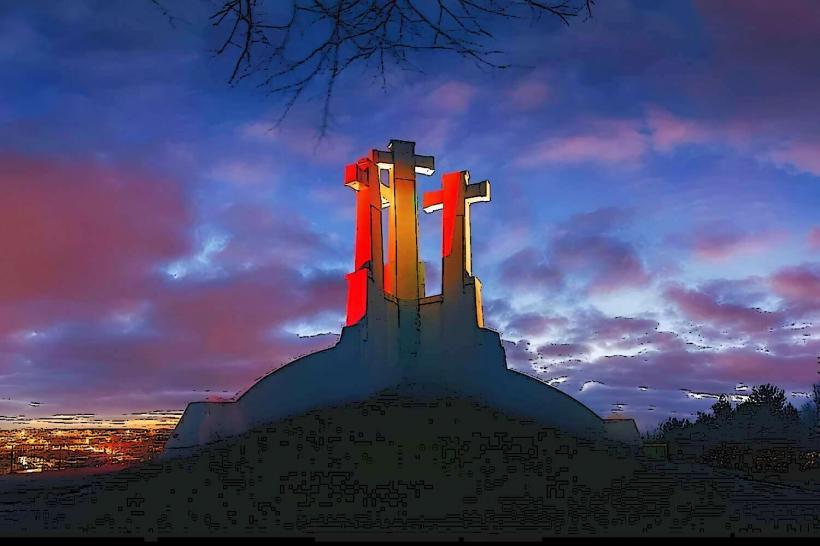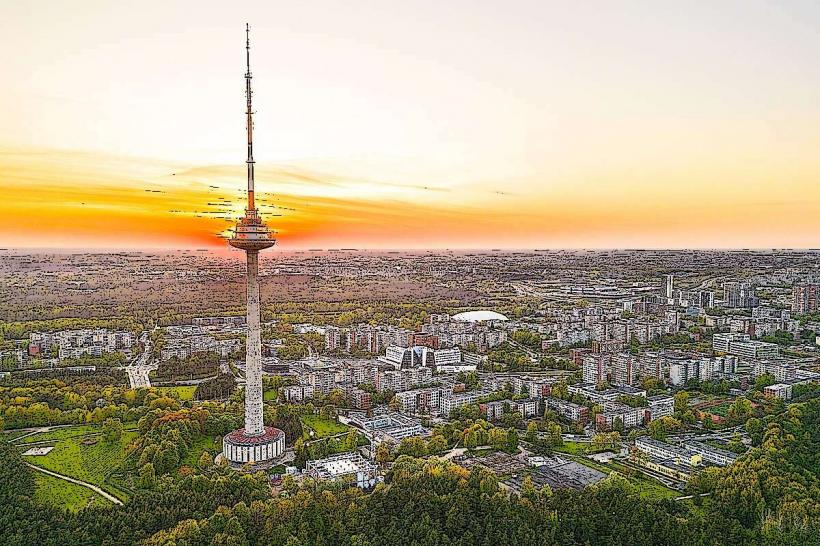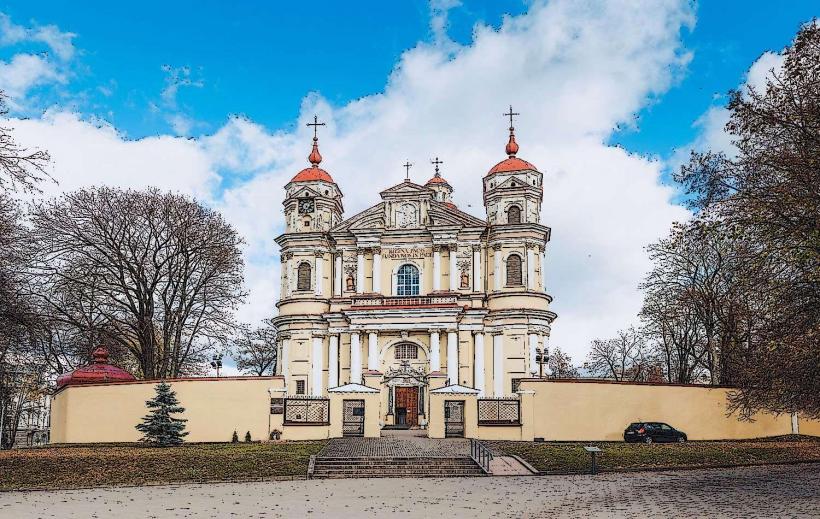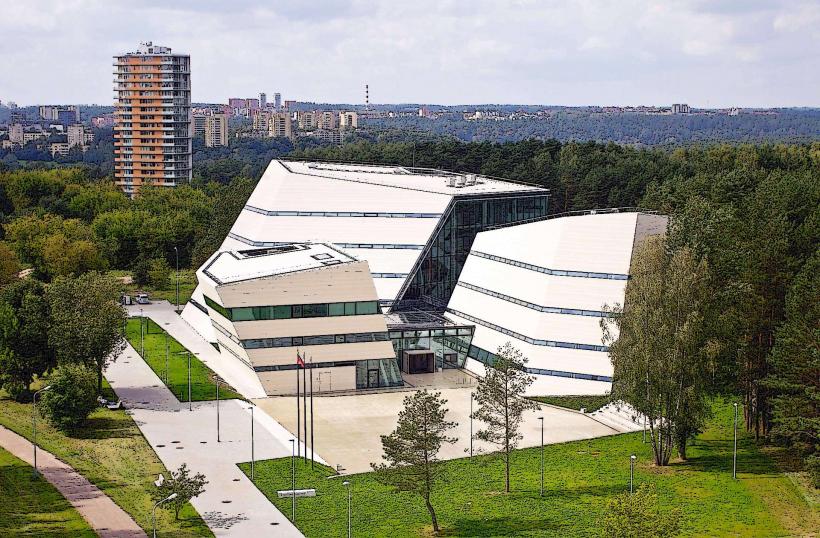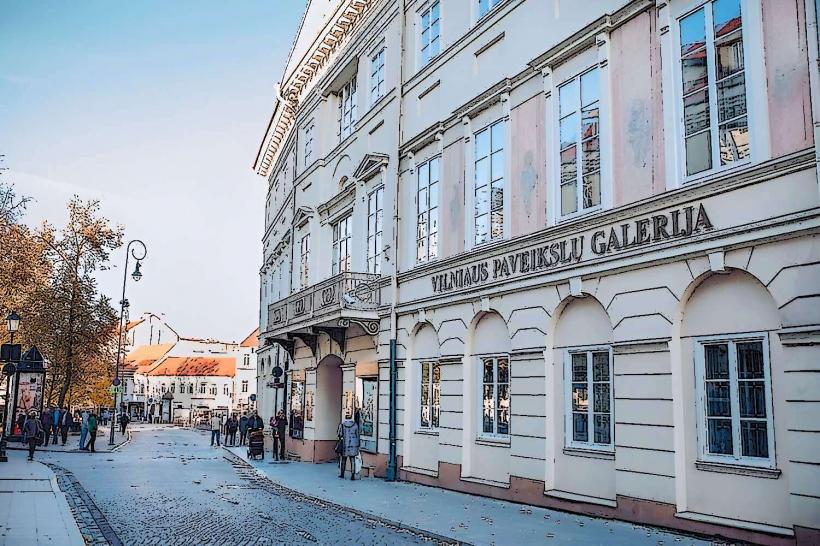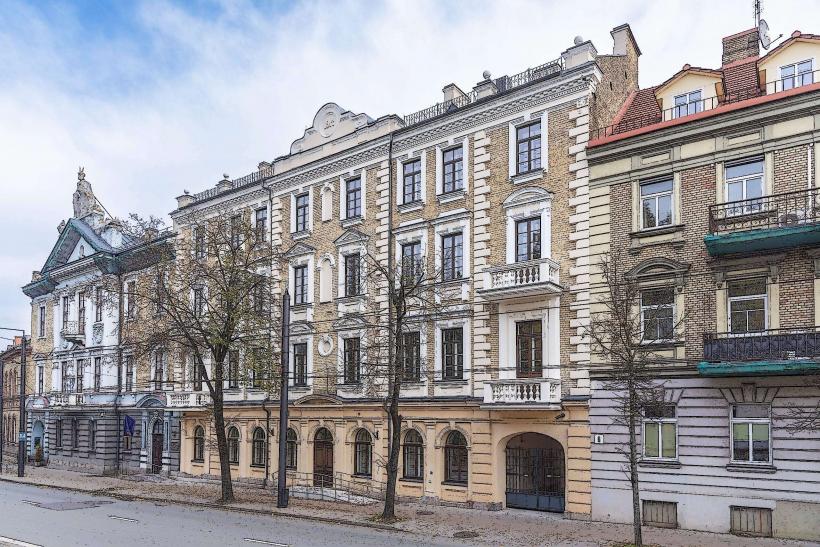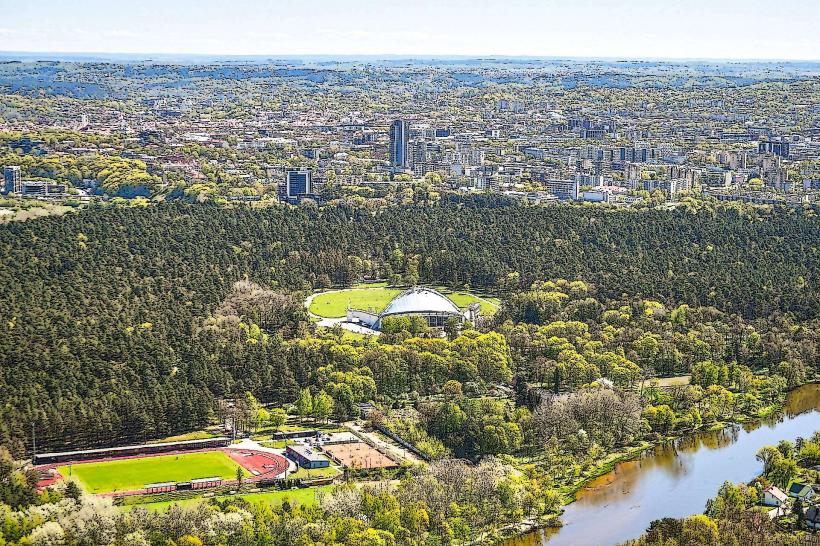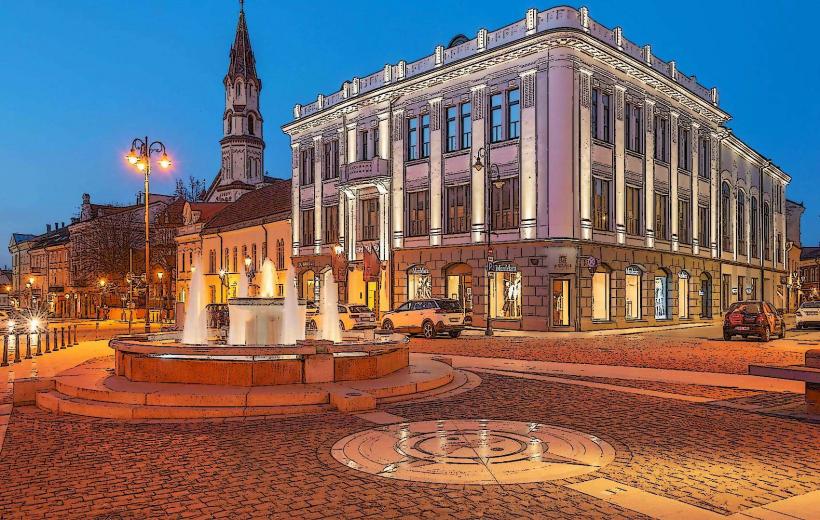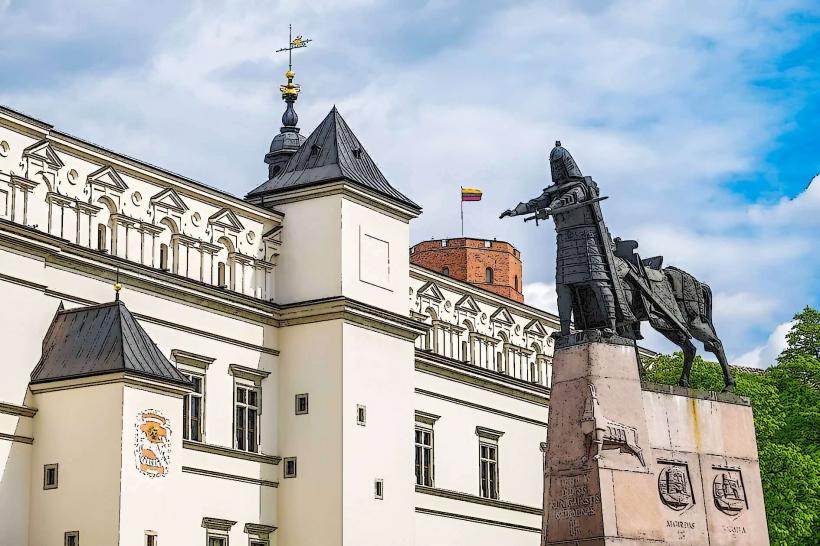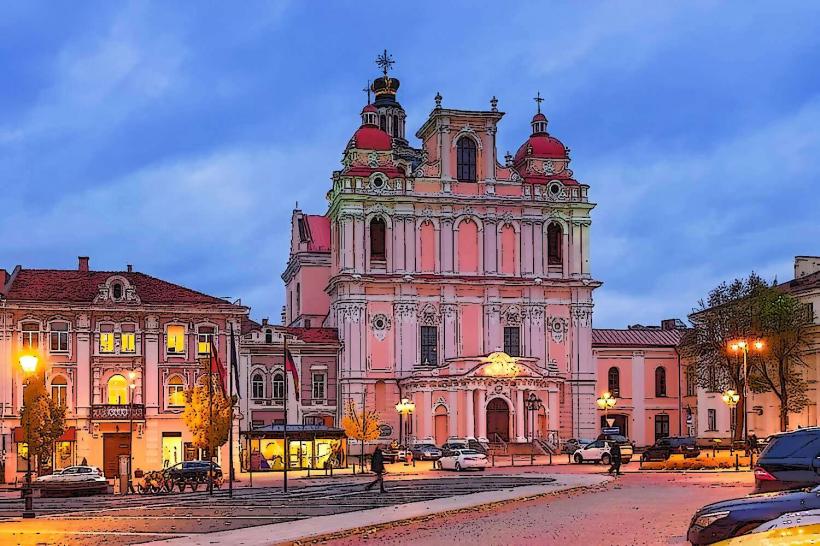Information
Landmark: Vilnius UniversityCity: Vilnius
Country: Lithuania
Continent: Europe
Vilnius University, Vilnius, Lithuania, Europe
Vilnius University is a public research university situated in the Old Town of Vilnius, Lithuania. It is the oldest university in the Baltic states and one of the oldest in Northern Europe.
Visual Characteristics
The university complex comprises 13 courtyards, primarily exhibiting Baroque, Renaissance, and Gothic architectural styles. Buildings are constructed predominantly from red brick and plastered facades, often painted in ochre, white, or light yellow hues. The complex features numerous arcades, vaulted ceilings, and intricate frescoes, particularly within the university's St. John's Church. The church's bell tower, a prominent Baroque structure, reaches a height of 68 meters, making it one of the tallest buildings in Vilnius Old Town. The Grand Courtyard is characterized by its uniform Baroque facades and a monumental fresco depicting the history of the university.
Location & Access Logistics
Vilnius University is centrally located within the UNESCO-listed Vilnius Old Town, primarily accessible via pedestrian routes. The main entrance is situated at Universiteto Street 3. It is approximately 0.5 kilometers west of Cathedral Square and 1 kilometer north of the Town Hall Square. Public transport access is available via numerous bus and trolleybus lines stopping at nearby points such as "Arkikatedra" (Archcathedral) or "Vinco Kudirkos aikštė" (Vincas Kudirka Square), which are within a 5-10 minute walk. Parking within the Old Town is restricted and typically requires paid street parking or designated parking garages, such as the one near Gediminas Avenue, approximately 1 kilometer northwest.
Historical & Ecological Origin
Vilnius University was established on April 1, 1579, by King Stephen Báthory of Poland and Grand Duke of Lithuania, evolving from a Jesuit college founded in 1570. Its original purpose was to serve as a Jesuit academy, providing higher education in theology, philosophy, and law, and to counter the Protestant Reformation in the region. The university's architectural development spans several centuries, with significant Baroque additions and renovations occurring after the 17th-century fires.
Key Highlights & Activities
Visitors can explore the university's historic courtyards, including the Grand Courtyard, Observatory Courtyard, and Skarga Courtyard. Access to the Vilnius University Library, one of the oldest libraries in Lithuania, is possible, often featuring exhibitions of rare manuscripts. Climbing the St. John's Church Bell Tower provides panoramic views of Vilnius Old Town. Guided tours of the university complex and its specific historical rooms are available, typically departing from the main entrance or information center.
Infrastructure & Amenities
Public restrooms are available within the university complex, often near the main entrance or specific courtyards. Limited shade is provided by building facades and some trees within the courtyards. Cell phone signal (4G/5G) is generally strong throughout the campus. Several cafes and small eateries are located within the university grounds, particularly in the Grand Courtyard area, offering refreshments and light meals. Gift shops selling university-themed merchandise and books are also present.
Best Time to Visit
The university courtyards are generally accessible during daylight hours. For photography, early morning or late afternoon light provides optimal conditions, particularly for capturing the architectural details and frescoes without harsh shadows. The months of May, June, September, and early October offer pleasant weather for exploration. Specific internal areas like the library or bell tower may have limited operating hours, typically from 10:00 to 17:00 on weekdays.
Facts & Legends
The Vilnius University Library houses a collection of over 5.4 million documents, including the first book printed in Lithuania, Martynas Mažvydas's "Catechism" from 1547. A local legend suggests that touching the "magic stone" in the Observatory Courtyard, which marks the meridian line, brings good luck to students during exams. The university's astronomical observatory, established in 1753, was one of the first in Eastern Europe and played a significant role in scientific advancements of the era.
Nearby Landmarks
- Cathedral Square: 0.5km East
- Presidential Palace: 0.2km North
- Gediminas' Tower: 1.0km Northeast
- Town Hall Square: 0.7km South
- Palace of the Grand Dukes of Lithuania: 0.6km East

